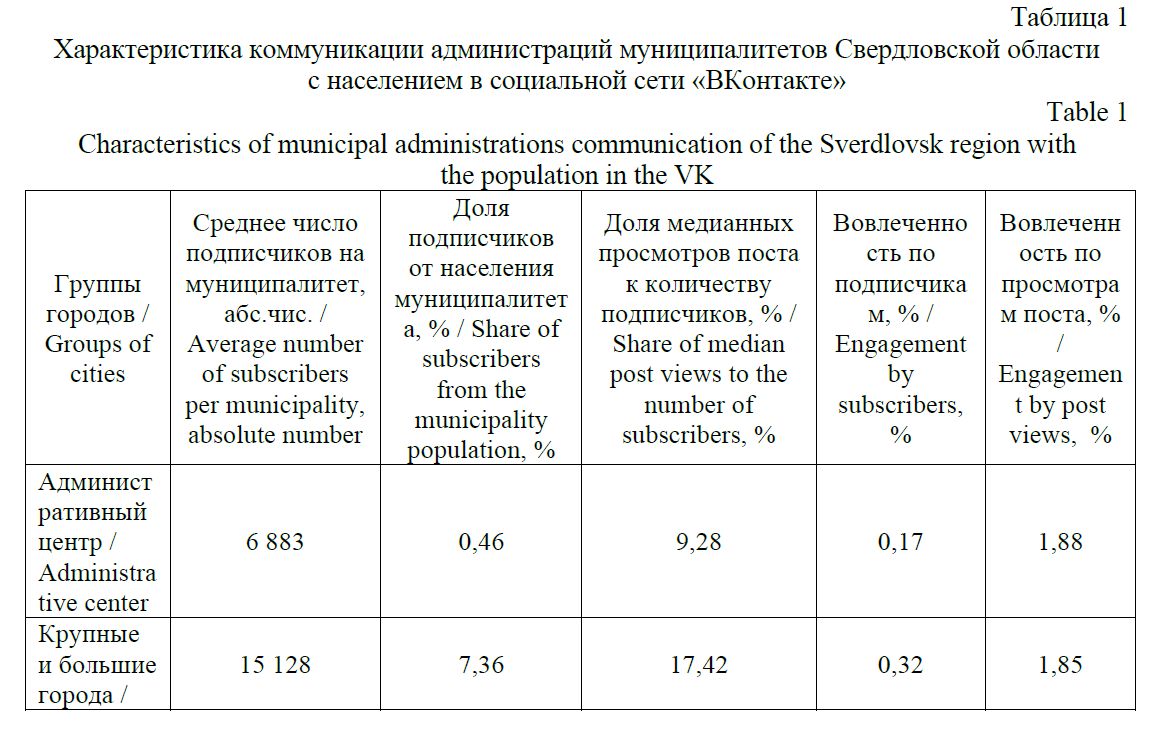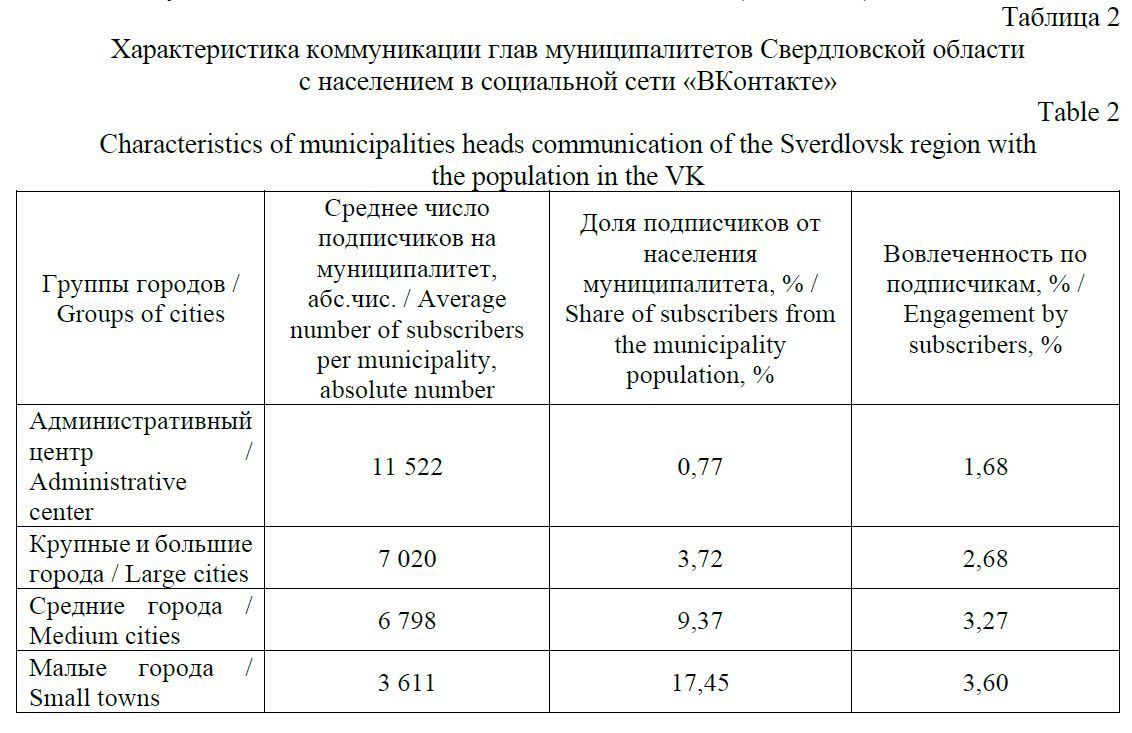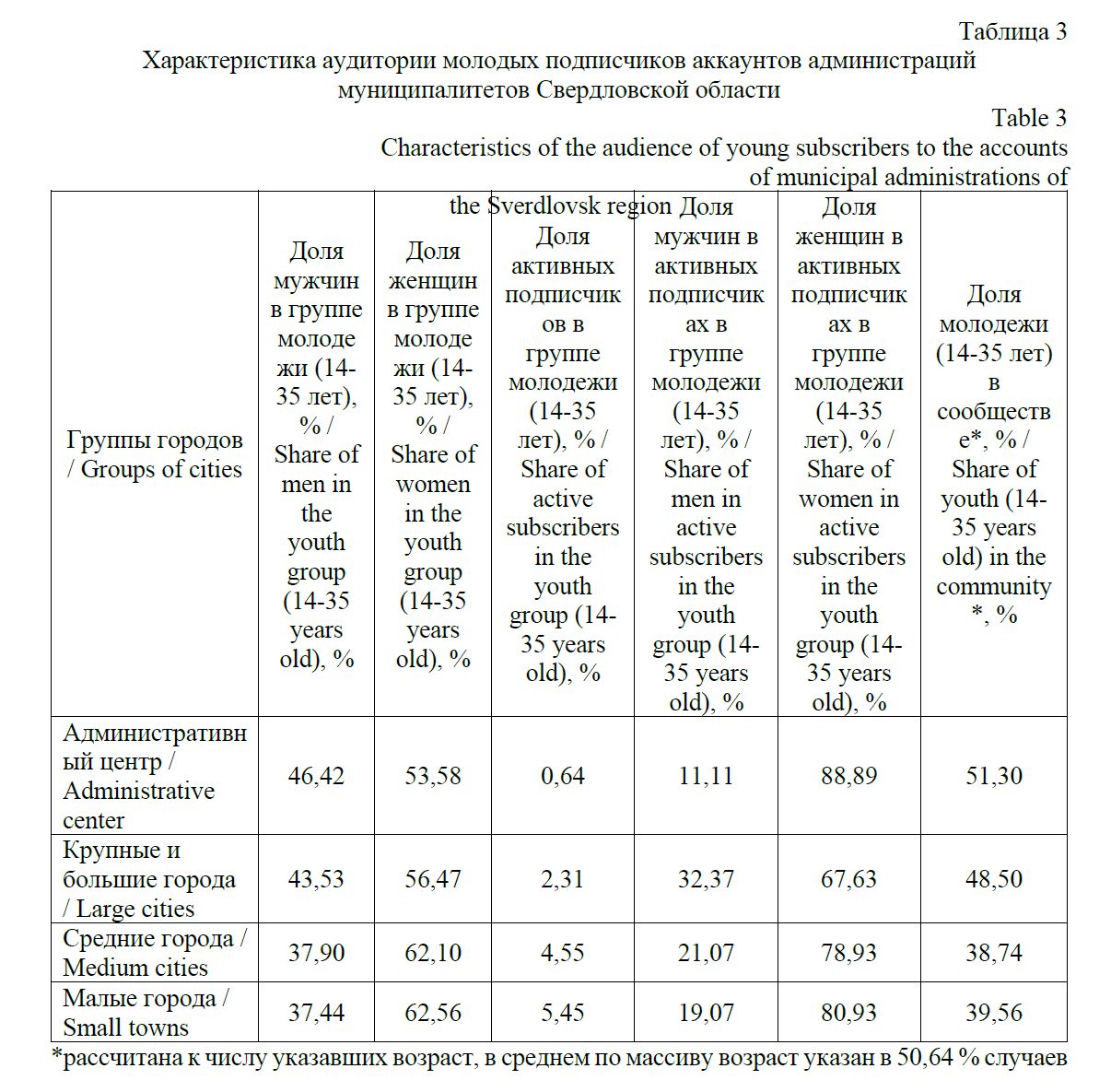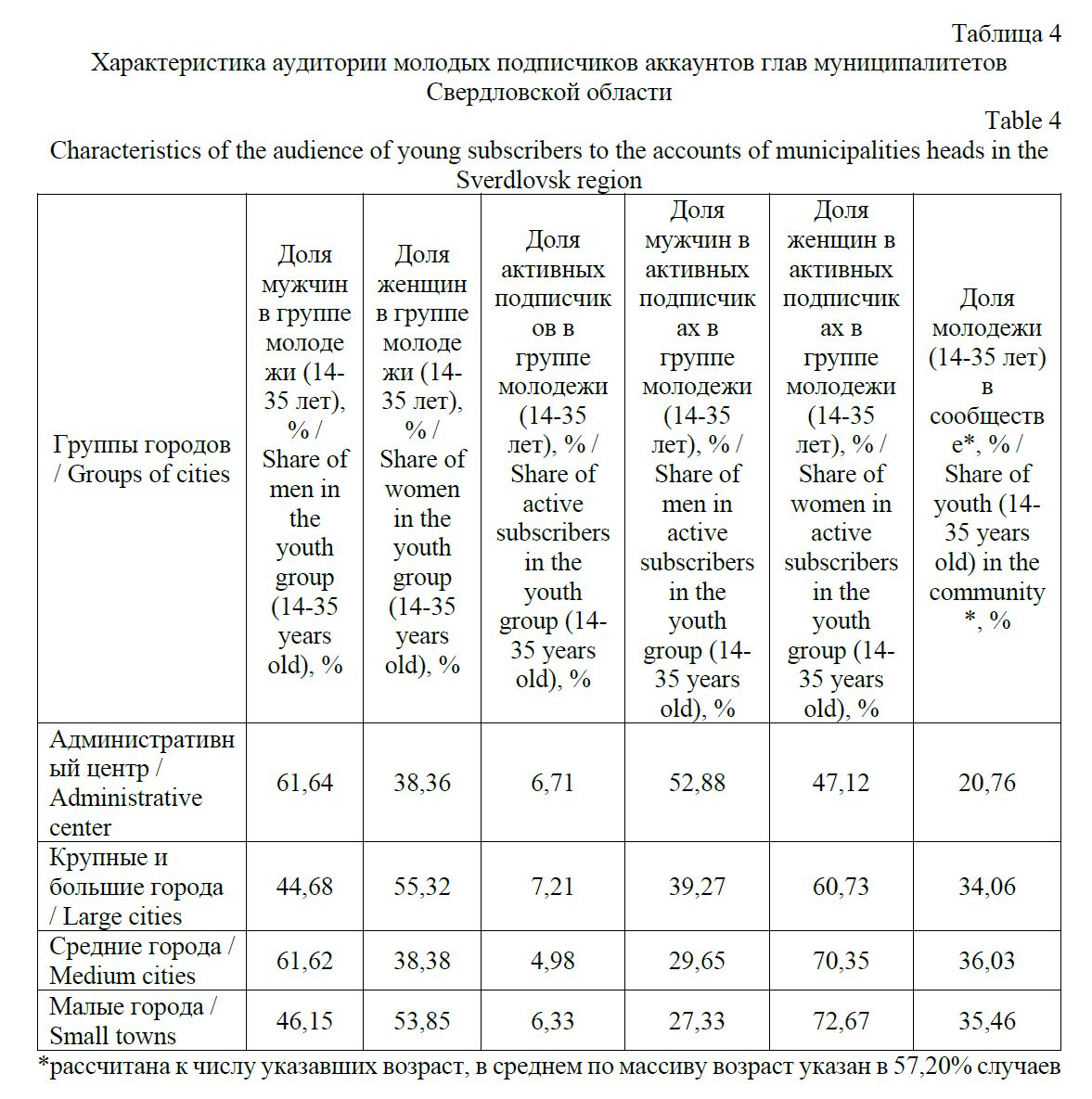Communication of students with local governments in social media
Digital technologies, including in the field of communication between government bodies and the population, are actively used in the context of achieving the goal of digital transformation. Young people use social networks in their everyday lives as forms, mechanisms, technologies of self-realization, self-expression, self-searching and simply life. Students are one of the most active groups of young people who not only master professional competencies in the learning process, but also get involved in the socio-political agenda of their city, region, country. How familiar, understandable and natural is it for them to interact with local government bodies in social networks? The scientific problem of the study is the lack of empirically substantiated information on the attitude of students to the potential of digital communication with local public authorities in social networks. The authors use the Mix research strategy. The accounts of municipal administrations of the Sverdlovsk region (n=73), as well as the accounts of heads of municipalities (n=71) in the social network VK were analyzed using parsing tools. The data are supplemented by the results of qualitative in-depth interviews with student youth (n=26). The analysis showed that young people do not consider social networks as a channel for dialogue and two-way communication with local governments due to low awareness of the existence of municipal administration accounts in social networks, lack of understanding of how to build a dialogue through this channel and low trust in this communication channel as effective, lack of examples of constructive solutions to issues through social networks. At the same time, the involvement of young people in communication in social networks is higher in the personal accounts of heads of municipalities, but, at the same time, there are fewer young people subscribed to such accounts. To build a dialogue with municipal authorities through social networks, it is necessary to demonstrate to youth the possibilities of communication with municipal administrations in social networks in the context of not only openness and transparency of power, but also involvement in the development and adoption of management decisions.
Figures





Savchuk, G. A., Bannykh, G. A., Kulpin, S. V., Kurashov, R. M. (2024), “Communication of students with local governments in social media”, Research Result. Sociology and Management, 10 (3), 168-183, DOI: 10.18413/2408-9338-2024-10-3-1-1.


















While nobody left any comments to this publication.
You can be first.
Abramova, S. B., Putimtseva, K. R., Kondrashov, A. O. (2024), “Social networks of government bodies: youth involvement and effectiveness assessment”, Ars Administrandi (The Art of Management), 16 (1), 54-78. (In Russian)
Bannykh, G. A., Baranova, M. E., Rezhetskaya, A. I. (2022), “Awareness of young people about communication technologies in government bodies in the context of digitalization”, Proc. VIII Int. Sc. and Pract. Conf. “Strategies for the development of social communities, institutions and territories”: Yekaterinburg, Russia, 217-221. (In Russian)
Bashirov, E. A. (2021), “Social networks as a tool for feedback between young people and government bodies”, Proc. IX Int. Sc. and Pract. Conf. “Business. Science. Education. Legal and economic aspects”, Vologda, Russia, 583-587. (In Russian)
Gureeva, A. N., Kireeva, P. A. (2023), “Features of media communication of youth with the state in social networks”, Journal of the Siberian Federal University. Series: Humanities, 16(5), 841-857. (In Russian)
Zaborova, E. N. (2024), “Interaction of authorities and population: electronic realities”, Research Result. Sociology and Management, 10 (2), 117-126, [Online], available at: https://rrsociology.ru/journal/annotation/3470/ (Accessed 09 August 2024). (In Russian)
Zalivansky, B. V., Samokhvalova, E. V. (2017), “Municipal authorities and urban youth: technology of dialogue about the future”, City management: theory and practice, 4 (27), 96-104. (In Russian)
Karpova, O., Begicheva, O., Kolosova, O. (2022), “The influence of social networks on the formation of public opinion of young people”, Bulletin of the Yerevan State University of Languages and Social Sciences, 1 (62), 199-214. (In Russian)
Myagkova, E. A., Konstantinov, D. S. (2023), “Social networks as a tool for public relations of government bodies at the municipal level”, Science and Education, 6 (3), [Online], available at: https://opusmgau.ru/index.php/see/article/view/6121 (Accessed 28 July 2024). (In Russian)
Potapova, E. P., Saveliev, I. I., Eremeeva, A. P. (2023), “Digital communications in local government”, Scientific works of the Free Economic Society of Russia, 244(6), 431-448. (In Russian)
Putimtseva, K., Abramova, S. (2023), “Digital practices of communication between youth and authorities: assessments of inclusion and effects”, Proc. Int. Sc. and Pract. Conf. “Our cause is just – victory will be ours!”, Tyumen, Russia, 80-85. (In Russian)
Smolin, A. G., Palchikova, M. V. (2024), “Features of interaction of local governments in social networks: changes through the prism of society”, Gaps in the Russian legislation, 17 (3), 166-171. (In Russian)
Filatova, O. G. (2020), “State communications in the digital public sphere of Russia: 2011-2020”, Contours of global transformations: politics, economics, law, 2, 72-91. (In Russian)
Shalin, M. S. (2023), “Improving the communicative field of a municipality – a social network of local government”, City management: theory and practice, (2), 3-14. (In Russian)
Shchenina, O. G. (2022), “Digital youth in the political space”, Proc. All-Rus. Sc. and Pract. Conf. “Youth in the socio-political life of modern Russia: subjects and innovative practices of youth policy”, Krasnodar, Russia, 144-147. (In Russian)
Bons´on, E., Royo, S., Ratkai, M. (2015), “Citizens' engagement on local governments' Facebook sites. An empirical analysis: The impact of different media and content types in Western Europe”, Government Information Quarterly, 32 (1), 52-62.
Kraut, R., Kiesler, S., Boneva, B., Cummings, J. (2002), “Internet Paradox Revisited”, Journal of Social Issues, 58 (1), 49-74.
Zavattaro, S. M., Sementelli, A. J. (2014), A critical examination of social media adoption in government: Introducing omnipresence, Government Information Quarterly, 31 (2), 257-264.
The research was supported by the Russian Science Foundation grant № 24-28-01153, https://rscf.ru/project/24-28-01153/.